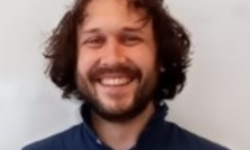Platon seminar (11/05/2023) – Hugo Dornier
Hugo Dornier, PhD student, Platon Team (joint with Onera) Title: Robust and efficient CFD simulation of the ARL-SL19 supersonic cascade through adaptive mesh refinement Abstract: The presentation will focus on an efficient adaptive mesh refinement method able to generate automatically high quality grids that allow accurate CFD simulations for supersonic…










